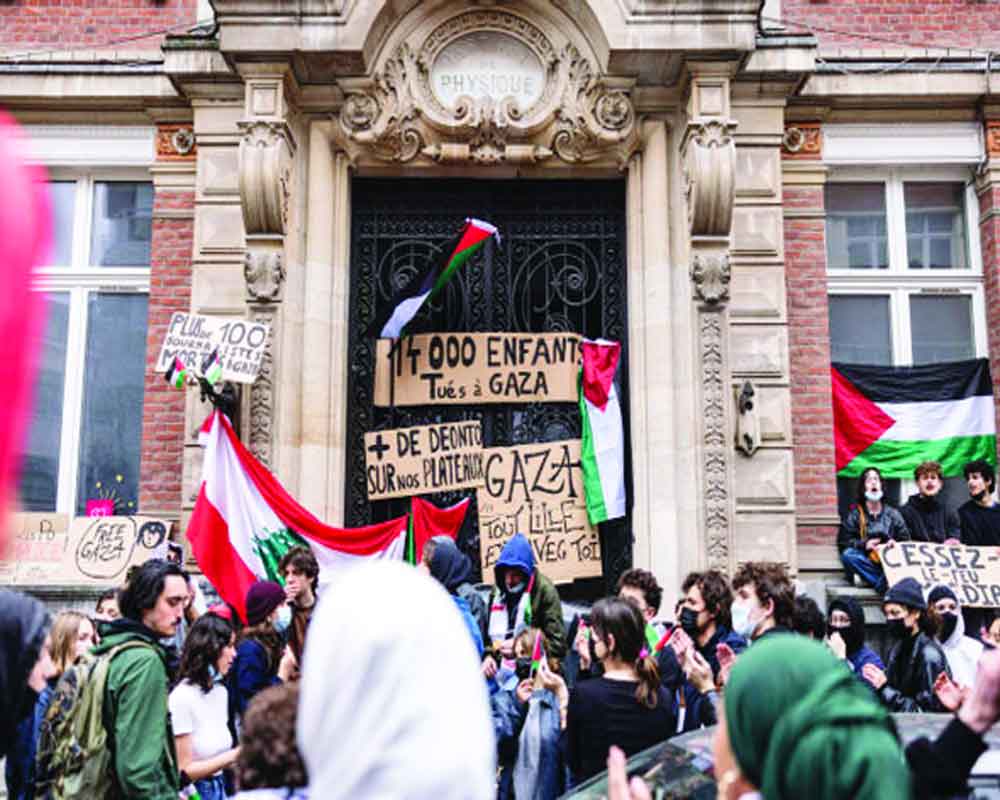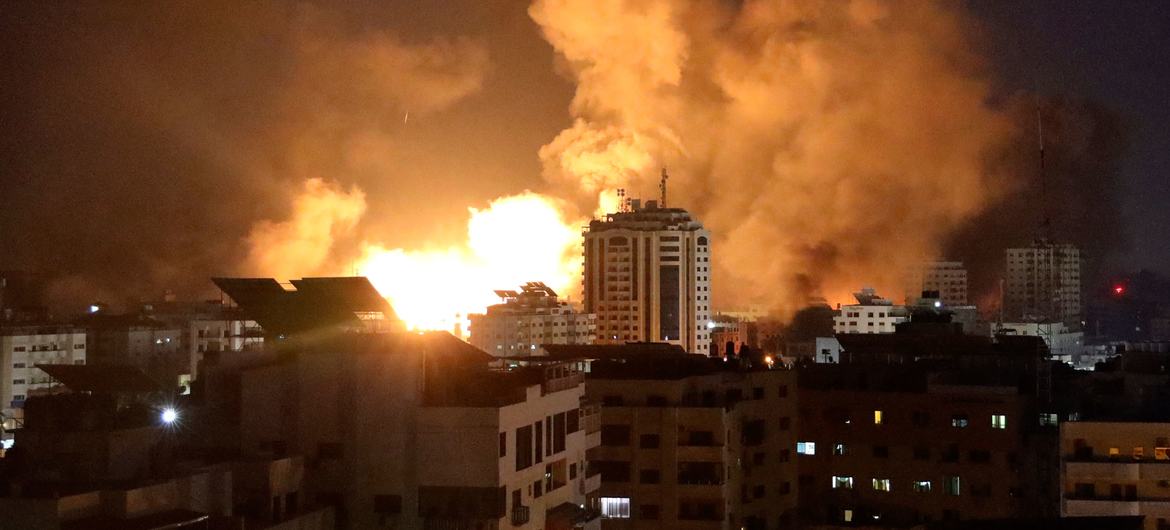As more students join anti-Israel protests in countries like the US, England, France and elsewhere, it has spawned a debate regarding the role of educational institutes in shaping political ideologies and influencing global opinion, as well as the question of whether students should get involved in politics
 KRC TIMES Desk
KRC TIMES Desk

As more students join anti-Israel protests in countries like the US, England, France and elsewhere, it has spawned a debate regarding the role of educational institutes in shaping political ideologies and influencing global opinion, as well as the question of whether students should get involved in politics. The phenomenon of anti-Israel protests on campuses cannot be viewed in isolation; it reflects broader geopolitical undertones and social movements.
However, the specific targeting of educational institutes as platforms for such protests raises important questions about the purpose of universities and their responsibility to foster constructive dialogue versus perpetuating bigotry. One aspect of this development is the clash between freedom of speech and the promotion of inclusivity and diversity.
Anti-Israel protests, if not conducted respectfully and with a focus on dialogue rather than confrontation, risk alienating certain student segments. That said, it is also a fact that pro-Israel demonstrations were first witnessed in certain universities of esteem in the US. As Israel launched an offensive in Gaza, a parallel campaign started in these varsities, allegedly at Israel’s behest and funding. Indeed, pro-Israel sentiment has been high in the US as well as in Europe; everyone remained tightlipped when Israel indulged in human rights violations in Gaza. Thus, the latest anti-Israel demonstrations are more of a reaction to that. Besides, even Israelites are now fed up with the ongoing war; they are rallying against Netanyahu and his policies towards West Asia in general and Palestine in particular.
As a Sanskrit saying goes: “Ya vidya sa vimuktaye” (Education liberates).” Since it is a universal truth, this liberation must manifest itself in the conduct of students. No denying the logical boundaries of any dissent and that violence has no role in such demonstrations. The students must focus on their studies, which is what they are supposed to primarily do on college campuses. But it would be rather an anti-thesis of education if they are not aware of what is happening around them and if they fail to react to correct any wrongdoings around them.
It is equally true, they can’t remain unaffected by the social milieu around them. Back home, let us not forget it was essentially a student movement under the leadership of Jayaprakash Narayan that opposed the Emergency. During the struggle for Independence, many leaders quit colleges and jumped into the freedom movement.
Bhagat Singh, on the issue of students joining politics, wrote: “Was (the students of England and Germany) quitting colleges and going to war not politics? Where were the preachers then; why didn’t they ask those students to study? Only the efforts of students and youth have brought independence to any country which is now free….” The words are prophetic and inspiring; one wishes his essay could be read aloud in the western universities.
Advertisemnet | 5E for Success





